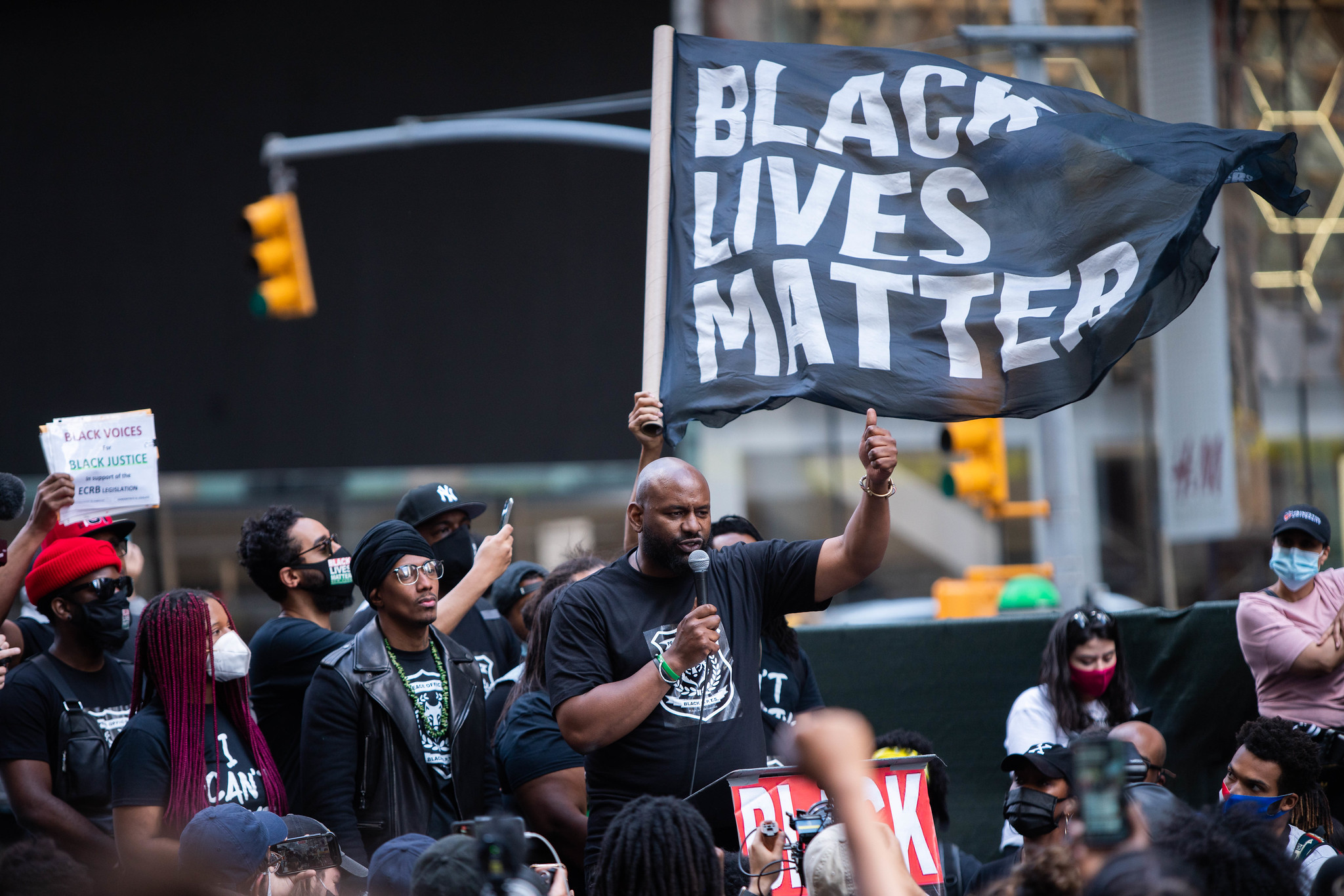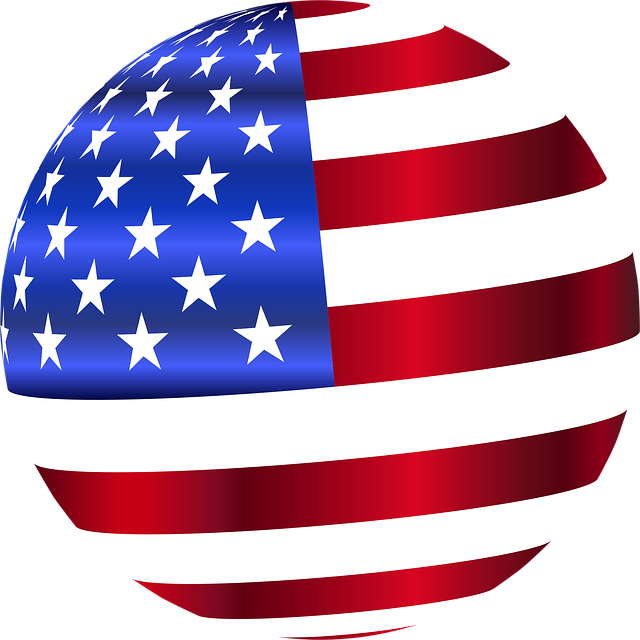Eileen Huang: My Response
 Black Lives Matter Protest at Times Square, New York City on June 7 2020 (Photo courtesy to Anthony Quintano | Flickr)
Black Lives Matter Protest at Times Square, New York City on June 7 2020 (Photo courtesy to Anthony Quintano | Flickr)
Content warning: Anti-Black language, stereotypes, violence
In just this past week, my letter to the Chinese American community has received an outpouring of support. It’s captured the attention of Chinese American parents, children, grandparents, journalists, authors, and even winners of the Civil Courage Prize. Hundreds of you have reached out to me to share how helpful the letter was to you, or how it has changed your mind on a lot of issues. It has also incited quite a bit of controversy, to say at the least.
Some have commented that I cannot claim to represent the entire Chinese American community. They are right. I do not. However, many Chinese Americans are anti-Black. That’s a fact. Those who have criticized my piece because of this also assert that they themselves are not anti-Black at all. They then go on to say things such as, Black people are only poor because they are lazy, Do NOT donate to Black organizations, and, I would never let my children marry Black people, but that is not racism … that’s just my preference. Of course people who harbor anti-Black biases do not think they are racist—they think they are right.
Some have taken offense to my statement that we owe Black Americans everything. They’ve stated that they’ve worked very hard to get where they are. That they came to this country with nothing—why should they owe their success to anyone? I am not discrediting their labor and struggle, though this narrative is not factual. Many of them did not come to this country with nothing. They came to receive PhDs, master’s degrees, undergraduate degrees, and high-paying jobs because the United States government only granted visas to high-income, highly educated professionals from Asian countries. It is also a fact that none of us would be here if it weren’t for the Immigration and Nationality Act of 1965, which abolished the racist immigration quotas that had lasted for centuries and had barred most Asian immigrants from entering the country. The act only passed because of one defining historical moment: the Civil Rights Movement.
Some have also pointed out that we Asian Americans have contributed just as much—if not more—to the formation of America. This is true: Chinese Americans who came before us laid the tracks for the transcontinental railroad. Japanese issei worked in abysmal conditions on Hawaii’s sugar plantations. During World War II, Sikh and Filipino Americans enlisted in the military in large numbers. Yet, we have also contributed to much of America’s violence. It was a Korean American storekeeper who shot Latasha Harlins, a 15-year-old Black girl, for trying to steal a bottle of orange juice. It was a Chinese American officer who fired at and killed Akai Gurley, a Black man who was only standing in the stairwell of his own apartment complex. And it was a Hmong American cop who protected the White man who suffocated George Floyd to death. We have contributed as much to America’s evils—its deep, underlying anti-Blackness—as its so-called “greatness.” This is a fact that we must work to recognize and amend.
Some of you have said that Black Americans are policed and murdered in large numbers simply because they did not work hard enough. This strikes me as the most nonsensical argument of all: Who in America has worked harder than Black Americans, whose ancestors literally built this nation from the ground up, whose people have plowed our fields, whose bones are buried under the White House, the Washington Monument, and all of our national landmarks? All of their achievements remain, to this day, uncompensated. The idea that America is a meritocracy—that you can gain respect and liberation simply by working hard—is simply false.
Lastly, many of you have scolded me and other second-generation Chinese Americans, saying that we are sheltered and privileged, that we simply do not understand the pain, hardship, and diligence that our elders went through to become successful—that we should be showing gratitude instead of condemning our own community for its anti-Blackness.
We second-generation Chinese Americans are born into an inherently racist nation. Even though many of us were born in this country, we are still treated as foreigners. We’ve heard people shout, “Go back to your country!” or “Ni hao!” to us on the streets. We’ve watched White secretaries and grocery store clerks mock our parents for their broken English. We’ve forgotten how to speak our mother tongues, since, as children, we were scolded for speaking it in school. We’ve listened to the racial slurs hurled at our families: “chink,” “dogeater,” “gook.” We are severed from contact with our relatives in China; we can’t speak Chinese fluently. We witnessed our parents struggle against racist supervisors, bosses, landlords, and authority figures who continue to underestimate and silence them. It is not that we are sheltered from pain and trauma of our parents, but that we deeply, truly understand it. These traumas are passed down to us as well—only, we realize that they come from the racist laws, institutions, and attitudes that work to harm people of color in this country.
We are not complaining. We are speaking out and making calls to action, ensuring that future generations of Chinese Americans, children of color, and other marginalized people can live in a better society. We want to dismantle structures that perpetuate institutional racism and White supremacy. We don’t want what happened—and still happens—to us and our parents to persist in the future. And is that not the biggest show of our gratitude?
As my friend Kalos wrote compassionately in his essay, we are not calling out anti-Blackness because we want to condemn our own community, but because we deeply care about the people around us. Growing up, my Chinese American parents—who are also my biggest supporters—taught me that often, getting what you want isn’t easy. It can be difficult and painful. I suspect my article caused quite the stir because it touched on a dark reality, a spot of deep pain, shame, and discomfort for our people. Anti-racism is not an easy decision, but rather a difficult learning process. It is difficult to learn how we’ve hurt others, and even more difficult to unlearn those biases so many of us had held for our lifetimes. But we must try.
I strongly believe in our community’s ability to unlearn and address its anti-Blackness, evidenced by the overwhelming support I’ve received. For every angry WeChat comment I get, I get a sincere message from a Chinese father thanking me for writing an article that changed his perspective; emails from other Chinese American children saying that my letter allowed them to have productive conversations on race with their parents; direct messages from Chinese international students letting me know that they’ve shared my article with their relatives in China. Other students from Johns Hopkins, Columbia, and more have stood with me by writing their own letters. Friends of mine have told me that their parents are now furiously arguing with their anti-Black friends in their WeChat groups. Another friend reached out to me saying that her Chinese grandmother had learned more about police brutality against the Black community from my letter. She was angry when she heard about their pain. “We must stand with the Black community,” she had echoed. While the backlash my article has received has been intense, the support for Black Lives Matter that came from it has been even more powerful.
I want people who have opposed my letter to know that they can’t continue to sit out on these conversations on social and political issues, to maintain their silence. In this country, we Chinese Americans cannot blend into Whiteness by staying quiet, as much as we try. We are in yellow bodies. We are “chinks” unless we speak out against such labels—unless we demand change.
I want people who won’t acknowledge their anti-Blackness to know that my letter is not the creation of a single brainwashed “黄左.” Rather, it represents so many voices of the second generation striving to have this intergenerational dialogue with their elders. Harvard’s Chinese Student Association, Yale’s Chinese American Students Association, Yale’s Dean Sandy Chang, journalist Jeff Yang, Chinese American politicians, athletes, professors, city council members, and more have expressed their support of my article and of Black Lives Matter. We are waiting for more people to stand with us.
More importantly, I want our new supporters to mobilize. Our solidarity with the Black community means nothing without action. If you are in support of my letter, I urge you to identify other supporters and create WeChat groups where you can share information on places where you can donate, find peaceful protests and cleanups that are happening near you, and send each other readings and educational materials to further unlearn our anti-Blackness.
In the next few weeks, Kalos and I will work on an exciting new project. We are organizing a group of Chinese American students from Harvard, Yale, Stanford, Cornell, and more to write more articles on subjects many of you have brought up legitimate questions about: Why is policing so controversial in this country? Why are people calling to defund the police? What are other examples of Black and Asian American solidarity? Why should we support Affirmative Action? Who is Candace Owens? Our goal is to continue this dialogue that we’ve started. We will pull examples from history, ethnic studies, and our own experiences to spark more productive conversation on race in America. If you want to participate in these conversations, please keep following Chinese American and sharing our articles.
My generation is speaking up. Will you listen?
Can I count on all of you who support this article to donate at least $5 to one of the organizations and funds below? It would mean a lot to me.
Justice for Breonna Taylor Fund
The Nina Pop and Tony McDade Mental Health Recovery Fund
Please sign these petitions as well—it only takes a few seconds.
Justice for Maurice Gordon Jr.
Reopen Kendrick Johnson's Case #J4Kendrick
If you’re looking for more Chinese- and Asian-language resources, here is a comprehensive list compiled by the National Asian Pacific American Women’s Forum:
https://docs.google.com/document/d/1_7sAwRnQeEBpJY26h1tlwoIcib54jqNYfNDCps5_dSY/edit?usp=sharing
Lastly, if you’d like to stay updated on our WeChat project and receive updates on where to donate, please sign this petition:

评论 23
加入讨论
请登录后发表评论
Amanda
确认操作
Charlie
确认操作
J
确认操作
Anna Chinese Americans
确认操作
Ruby S
确认操作
Anna Chinese Americans
确认操作
XT
确认操作
Sam
确认操作
Michael H Stoiber
确认操作
Yama
确认操作